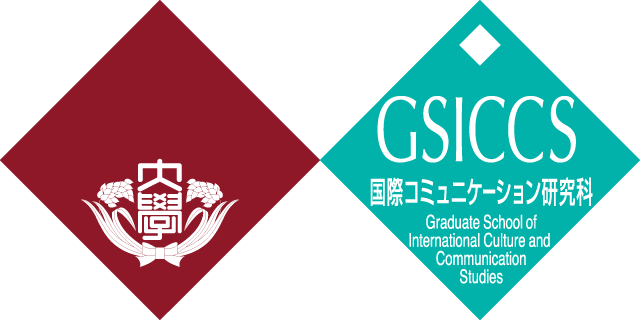- School Overview
- Program Outline
Program Outline

Outline of the Master's Program
The course of study at GSICCS is divided into three Study Plans: Language & Communication, Culture & Communication, and Society & Communication.
As regards to the organization of the curriculum, the three Study Plans share the same Basic Courses. Basic Courses are accompanied by Specialized Courses specific to each Study Plan, as well as Seminar Courses offering guidance on research topics along with methods and composition of the Master’s thesis. Moreover, a series of Related Courses provides an opportunity to acquire and develop communication and other practical skills. In this way, each Study Plan is systematically constructed to define an optimal balance between both breadth and depth of graduate-level study to all enrolled students.
Further in line with our efforts to better promote diversity of research and experience, students may also take part in courses related to the field of Culture and Communication Studies that are offered by the other graduate schools at Waseda University.
- Name of the course: Master’s Course
- Major specification: Major in International Culture and Communication Studies
- Degree: Master of Arts in International Culture and Communication Studies
- Course hours: Daytime
- Duration of program: 2 years
Outline of the Doctoral Program
Similar to the course of study at the Master’s, the Doctoral program at GSICCS is divided into three approaches: the linguistic approach, focusing on the analysis of language use, education and communication in our global society; the cultural and media approach, studying the complexity and diversity of contemporary media systems and cultural forms; and the social approach, concentrating on supranational economic and political problems as well as the role and significance of cross-cultural communities. Within these three approaches, in particular, the program will promote research and education centering on the following fields: Globalization and Transculture, Visual Culture and Language, IT Culture and Modern Society, and Theories of Media and Communication.
In terms of curriculum structure, the Doctoral program provides three modes of study: (i) Directed Research (Core Study), which provides the direction necessary to create the doctoral dissertation; (ii) Ph.D. Seminar, which provides both specialized and interdisciplinary research guidance based on Linguistic, Cultural/Media and Social approaches; (iii) Independent Study, which offers the chance to achieve specific goals, mainly under the guidance from an instructor other than your research director.
Together these avenues provide the resources to explore and master a number of different fields of study, and to work on the research project from a wide range of perspectives.
- Name of the program: Doctoral Program
- Major specification: Major in International Culture and Communication Studies
- Degree: Doctor of Philosophy in International Culture and Communication Studies
- Course hours: Daytime
- Duration of program: 3 years
